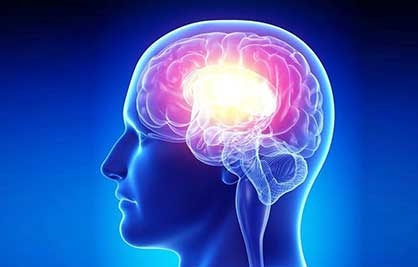Brain Related Infections - Tumors - Degenerative Diseases
Treatment Areas
- Treatment Areas +
- - Multiple Sclerosis
- - Epilepsy - Sara's Disease
- - Alzheimers
- - Dementia
- - Dementia, Alzheimers
- - Migraines and Headaches
- - Parkinson's Disease
- - Sleeping disorders
- - Stroke - Paralysis
- - Hand, Foot Numbness
- - Muscle Weaknesses
- - Peripheral Neuropathy
- - Brain Related Infections - Tumors - Degenerative Diseases
- - EMG - Electromyography
- - EEG Recording - Electroencephalogram
- - Long Term Video EEG
- - Visual Evoked Potentials - VEP Test
Brain Related Infections - Tumors - What Are Degenerative Diseases?
Brain diseases, Brain-related Infections, Tumors, Degenerative diseases occur in different forms. Infections, trauma, stroke, seizures, and tumors are some of the main categories of brain diseases.

Brain diseases in the infectious category include:
Meningitis: Stiff neck, headache, fever, and confusion are common symptoms.
Encephalitis: Meningitis and encephalitis often occur together as meningoencephalitis.
Brain Abscess: As a result of an infection in the brain, usually caused by bacteria; Antibiotic and surgical drainage of the area is usually required.
Brain Diseases: Seizures
In the seizure category of brain diseases is epilepsy, a condition characterized by recurrent seizures caused by abnormal and excessive electrical activity in the brain. Head injuries, brain infections, and strokes can also cause epilepsy.
Brain Diseases:
Traumas
Concussion: A brain injury that sometimes causes temporary disturbances in brain function, such as loss of consciousness and confusion; Traumatic head injuries cause concussions and can cause headaches along with concentration and memory problems.
Traumatic Brain Injury: Permanent brain damage resulting from a traumatic head injury can produce mental impairment or more subtle personality and mood changes.
Intracerebral Hemorrhage: Bleeding within the brain that may occur after a traumatic injury or stroke as a result of high blood pressure.
Brain Diseases: Tumors, Masses and Increased Pressure:
Brain Tumor: Malignant (cancerous) or benign brain tumors cause especially compression symptoms and focal neurological findings.
Glioblastoma: Glioblastomas, an aggressive, cancerous brain tumor, progress rapidly and are often difficult to treat.
Hydrocephalus: abnormally increased cerebrospinal fluid (brain) fluid inside the skull; usually, this is because the fluid cannot circulate properly,
Normal Pressure Hydrocephalus: The pressure inside the brain remains normal. However, walking difficulty, urinary incontinence and forgetfulness are the three defining features of the disease.
Pseudotumor Cerebri: Increased pressure inside the skull for no apparent reason; causes symptoms such as vision changes, headache, dizziness and nausea. .
Brain Diseases:
Stroke: As a result of the blood flow to the brain tissue and the consequent sudden cessation of oxygen and glucose, destruction of brain cells begins in a short time. The body part (such as an arm or leg) controlled by the damaged brain area may no longer function properly.
Ischemic Stroke: It suddenly blocks blood flow in an artery, causing a stroke. This occurs either due to a blockage in the artery or an embolism.
Hemorrhagic Stroke: Bleeding in the brain creates congestion and pressure in the brain tissue, disrupts healthy blood flow and causes paralysis.
Transient Ischemic Attack (TIA): It develops as a result of a temporary interruption of blood flow and oxygen to a part of the brain. The symptoms are similar to a stroke but resolve completely (usually within 24 hours) without damaging the brain tissue.
Brain Aneurysm: An artery in the brain inflates like a balloon, developing a weak area. A brain aneurysm ruptures, causing paralysis due to bleeding.
Subdural Hematoma: Bleeding on the surface of the brain. A subdural hematoma can put pressure on the brain, causing neurological problems.
Epidural Hematoma: Bleeding between the skull and the dura layer of the brain. Bleeding typically originates from an artery, usually shortly after a head injury. Symptoms that are mild at first can lead to unconsciousness and death if left untreated.
Cerebral Edema: Swelling of brain tissue that can be due to different causes, including injury or electrolyte imbalance.
Brain Diseases: Autoimmune Conditions
Brain diseases related to autoimmune diseases include:
Vasculitis: Seizures, headaches, and loss of consciousness can occur as a result of inflammation of the blood vessels of the brain.
Multiple sclerosis (MS): It is a disease that occurs when the immune system mistakenly attacks the body's own nerves. Symptoms of muscle spasm, fatigue and weakness may develop. MS may occur in attacks or may progress continuously.
Brain Diseases: Neurodegenerative conditions
Brain diseases due to neurodegenerative causes include:
Parkinson's Disease: Nerves in a central area of the brain gradually deteriorate, causing problems with movement and coordination. As early symptoms, it starts with conditions such as trembling in the hands, slowing down in movements, postural disorders, hoarseness, and deterioration in smell perception.
Huntington's Disease: An inherited disease that causes the degeneration of brain cells. Dementia and involuntary movements are the main findings. Early symptoms include mood swings, depression, and irritability.
Pick's Disease (Frontotemporal Dementia): Over time, large areas of the brain and nerves are destroyed due to the formation of an abnormal protein. Personality changes, inappropriate behavior, speech difficulties, memory loss are the symptoms of the disease.
Amyotrophic Lateral Sclerosis (ALS): In ALS, the motor nerves that control muscle function are rapidly and progressively destroyed. ALS progresses to paralysis and shortness of breath without mechanical assistance. Cognitive function is usually not affected.
Dementia: A decrease in cognitive function due to death or dysfunction of nerve cells in the brain. Conditions in which nerves in the brain degenerate, alcohol abuse and stroke can cause dementia.
Alzheimer's Disease: For unclear reasons, nerves in certain brain areas degenerate, causing progressive loss of memory and mental function, and behavioral and personality changes. Alzheimer's disease is the most common form of dementia.

